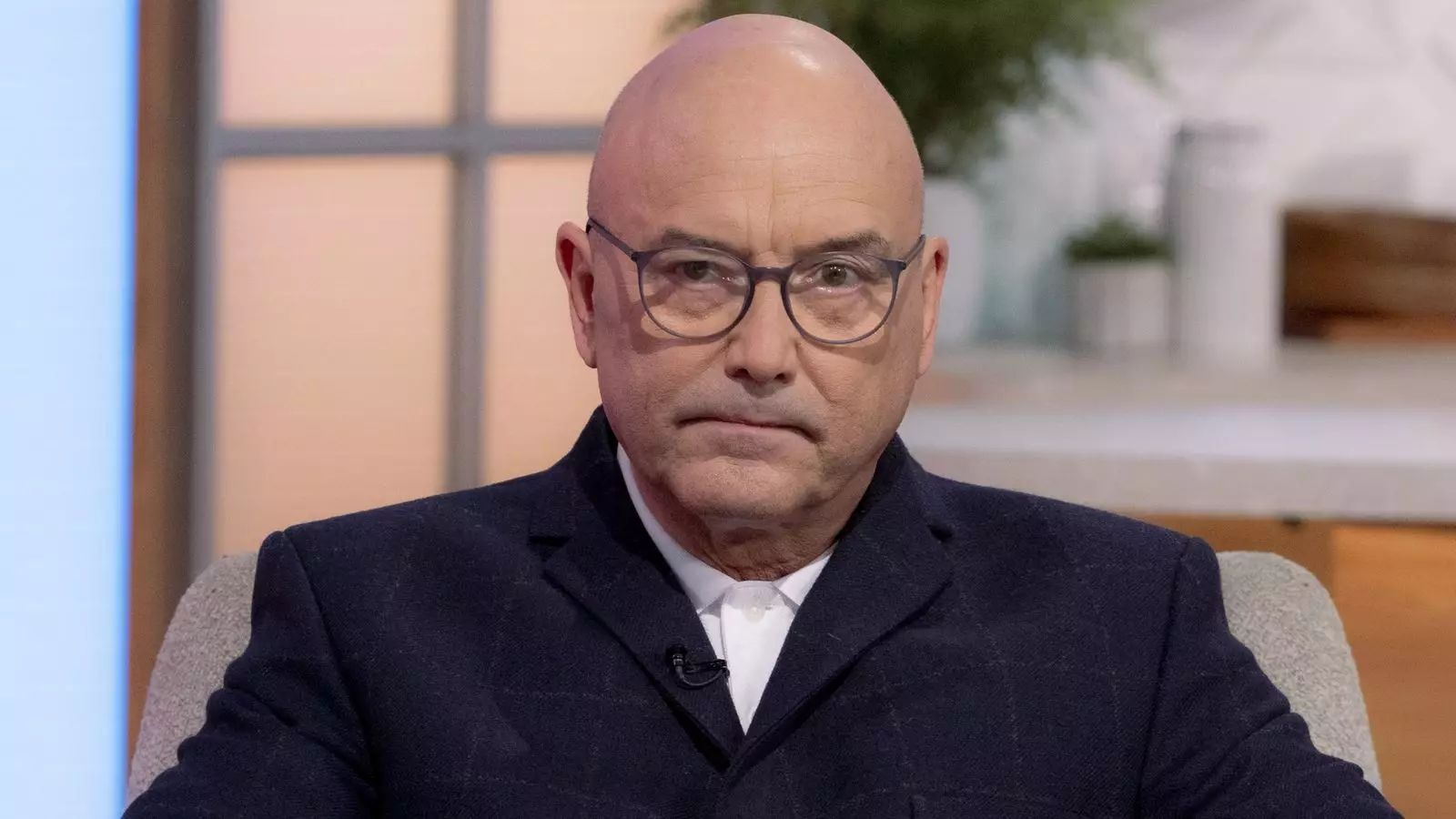In an age where public figures are closely scrutinized, any hint of misconduct can lead to a whirlwind of speculation and conjecture. Recently, Gregg Wallace, the well-known judge from BBC’s MasterChef UK, found himself in the midst of a media storm over alleged inappropriate comments made during a game show appearance in 2018. The incident on “Impossible Celebrities,” which ran from 2017 to 2021, resurfaced amid reports suggesting that there were claims of sexual nature against him. However, Wallace’s firm denial has steered the narrative toward a discussion about media representation and personal conduct in the public eye.
Following the emergence of these allegations, Wallace took to social media to clarify his position, stating emphatically that he did not make any sexual remarks during the show. In an Instagram story, he reiterated, “I hadn’t said anything sexual,” seeking to dispel misinformation that had circulated in recent news reports. This incident highlights the troubling phenomenon where the media can exacerbate misconceptions without sufficient context, leaving the implicated individual to defend their integrity against a backdrop of sensationalized narratives.
The BBC’s internal investigation concluded that Wallace was cleared to continue his work with the corporation. A BBC spokesperson also affirmed that any concerns raised are examined promptly and with seriousness, emphasizing their commitment to maintaining an appropriate environment for staff and participants. This assurance is crucial, especially given the heightened awareness of workplace conduct in the entertainment industry, marked by numerous instances of public figures facing repercussions for inappropriate behavior.
Wallace’s response was not solely focused on the allegations; he also aimed to highlight his commitment to his family. Emphasizing his fidelity to his wife, Anna, he expressed a desire to remain true to their partnership. Having been married four times, Wallace’s commitment to his present marriage appears to be a significant aspect of his personal identity, and he used this situation to reinforce his loyalty and integrity. This depth lends itself to a nuanced understanding of public figures who navigate both personal and professional realms under intense scrutiny.
His dedication to family extended beyond his marital commitment. Wallace has publicly shared his experiences as a father to his son, Sid, who is autistic and non-verbal. His recent decision to step back from “Inside The Factory,” where he performed as a presenter for nearly a decade, was driven by a desire to focus on his son’s needs. This move illustrates a growing trend among public figures who prioritize family responsibilities alongside their professional commitments, challenging the stereotype of the relentless, always-available celebrity.
The incident involving Wallace is reflective of a larger cultural commentary on the entertainment industry, wherein networks like the BBC are subjected to increased scrutiny over how they handle allegations of misconduct. The BBC has faced criticism in recent months for various incidents, including welfare issues related to contestants on “Strictly Come Dancing” and controversies surrounding its presenters. As networks strive to create environments that prioritize ethics and respect, public reactions to such incidents will remain a pivotal metric for evaluating their success.
Wallace’s situation poses critical questions about the balance of accountability and media responsibility. The speed with which allegations can be reported and sensationalized often overshadows the truth, leading to a trial by public opinion before a due process has even unfolded. This dilemma fuels discussions on how public figures can manage their reputations in an increasingly unforgiving media landscape.
As the dust settles around the allegations against Gregg Wallace, it becomes ever more important to approach such stories with a degree of skepticism and understanding. The media must strive for accuracy over sensationalism, while public figures should focus on integrity to navigate the complexities of their personal and professional lives. Ultimately, this incident serves as a reminder of the importance of clear communication and accountability, in both the public domain and at home.


Leave a Reply